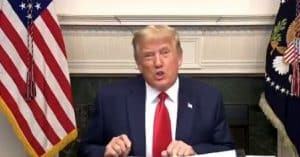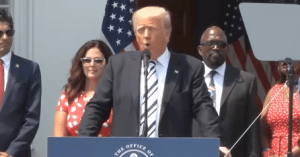Trump Campaign Criticizes Release of Court Documents in Run-Up to Election
Less than three weeks before the United States presidential election, U.S. District Judge Tanya Chutkan ordered the release of more materials from special counsel Jack Smith's inquiry into former President Donald Trump.
The focus of the contentious release is on federal election interference allegations, particularly accusations that Trump attempted to overturn the results of the 2020 presidential election while asserting presidential immunity, as Fox News reports, with the timing of the publication of particular concern.
Chutkan authorized the release of additional documents late Thursday night, responding to Trump's claims about the timing affecting early voting. She emphasized what she said was the importance of the public's right to access information, even amid concerns of potential election interference.
Public and Private Documents Involved
The unsealed materials include Smith's appendix of exhibits regarding Trump's claim of presidential immunity. Despite the release, many pages still remain under wraps, inaccessible to the public.
In particular, the unsealed files contain previously available documents, such as transcripts from the House Jan. 6 Committee, campaign press releases, and various news articles. The court detailed its endeavor to prevent political motives from influencing its decisions, contrasting with Trump's defense plea to defer document releases due to possible political effects.
Trump Campaign Responds to Document Release
Following the release, Trump’s campaign responded with strong statements, accusing political adversaries of election interference. Steven Cheung, a representative for Trump's campaign, expressed concerns about outsiders influencing the upcoming election, targeting Kamala Harris.
The former president has consistently denied all charges put forth by Smith, in line with his campaign's assertions of his dominance in the electoral race despite the legal challenges.
Supreme Court Ruling's Impact
Earlier in the year, the Supreme Court outlined that a sitting president is protected from prosecution for official conduct. In response, Smith adjusted the indictment against Trump, maintaining the charges but modifying the allegations to respect the court's ruling.
Smith’s revised indictment accuses Trump of crimes committed post-2020 election defeat, aiming to retain his presidential office. Specifically, these charges relate to attempts to alter election results in seven states: Arizona, Georgia, Michigan, Nevada, New Mexico, Pennsylvania, and Wisconsin.
Allegations of Conspiracy and Fraud
According to Smith, Trump's alleged schemes involved collusion with private parties and involved what he described as increasingly desperate measures to change the outcome in states where he lost. These efforts, as stated, attempted to disrupt the constitutional process of election result verification and counting as defined by the Electoral Count Act.
In Chutkan's order, she acknowledged Trump's claims regarding election interference due to the document release timing. However, she argued withholding such information might itself present a concern of manipulating electoral results.
Future Implications Amidst Legal Controversies
The interplay between the timing of these document releases and the impending election continues to stir debate. It raises questions about the balance between judicial transparency and electoral integrity.
Trump's legal journey continues as arguments over presidential immunity and election interference remain at the forefront. Supporters and critics alike are watching closely to see if these proceedings will sway public opinion ahead of the upcoming election.
Conclusion and Insights
Ultimately, the situation underscores the ongoing clash between judicial processes and political campaigns as election day draws near. While the courts aim to uphold justice, the influence on voters during such a pivotal time remains in question.
As the election approaches, how these proceedings unfold may play a critical role in shaping the public discourse. The outcome could set precedents for handling high-profile legal matters intersecting with electoral politics in years to come.




